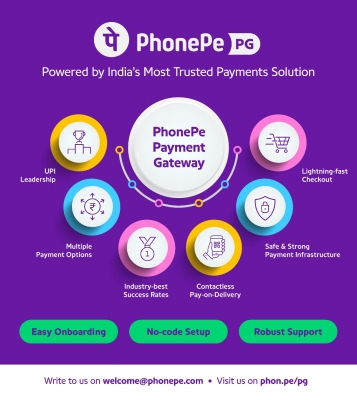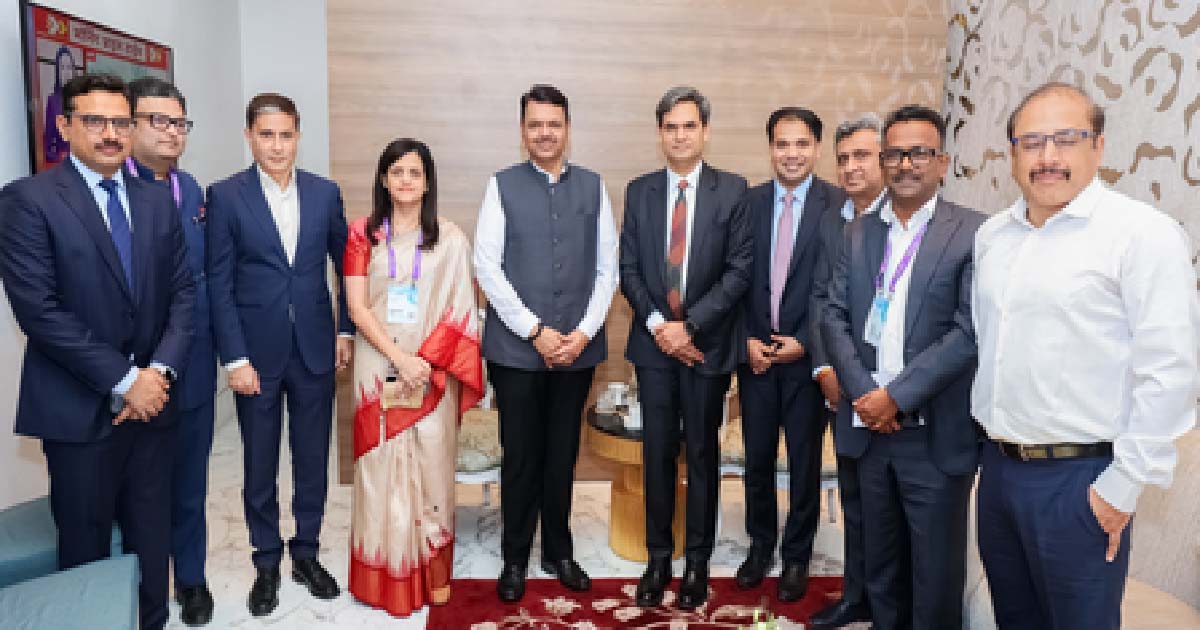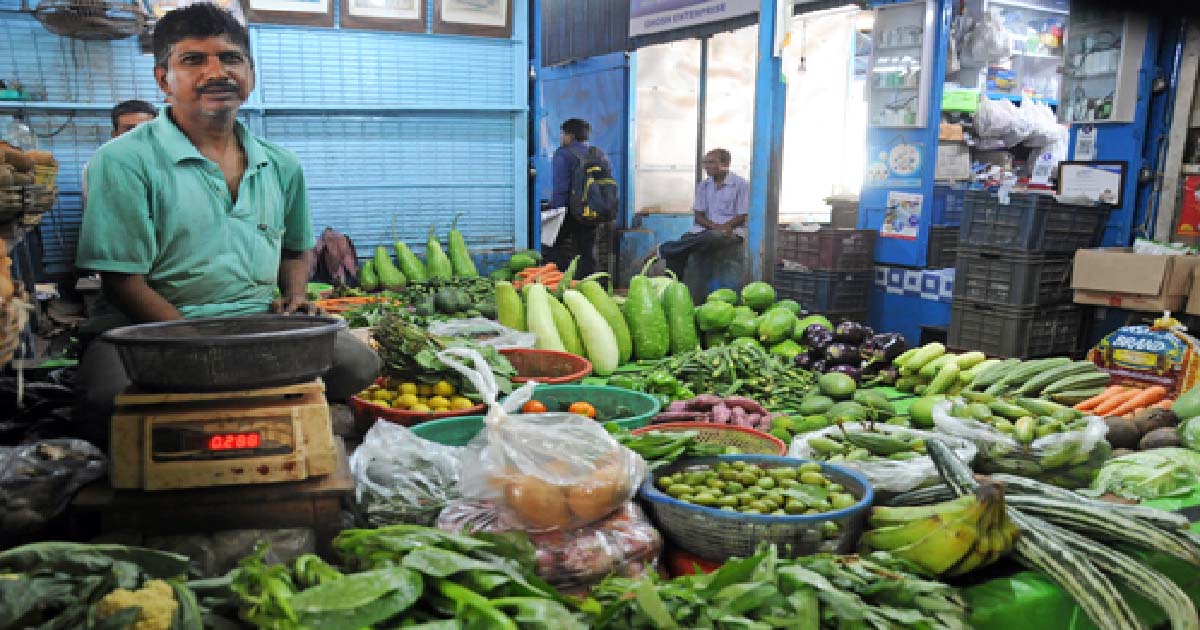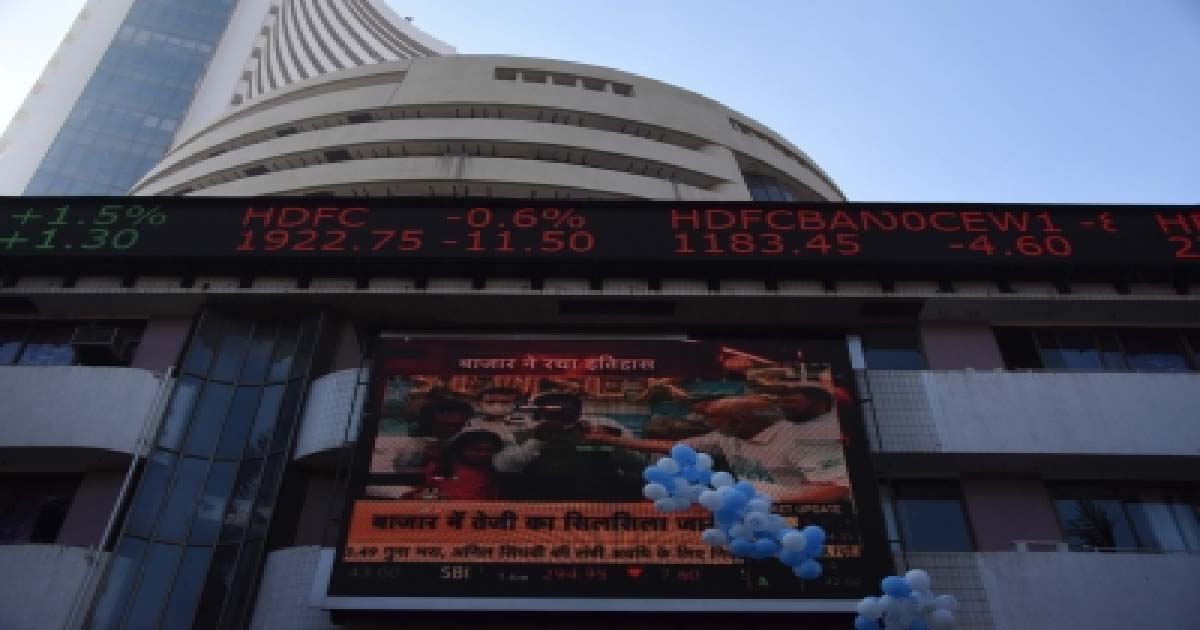Business
PhonePe Payment Gateway helps small, medium businesses save upto Rs 8 lakhs

Leading fintech company PhonePe on Wednesday announced that its Payment Gateway enables small and medium businesses to save up to Rs 8,00,000.
While most payment gateways charge a standard transaction fee of 2 per cent, the PhonePe Payment Gateway has a special offer for new merchants to onboard for free, with no hidden charges, setup fees, or annual maintenance fees. For instance, if businesses with a monthly sales volume of Rs 1 crore choose the PhonePe Payment Gateway for free, they could potentially save around Rs 2 lakh per month.
With this limited-period offer from PhonePe Payment Gateway, businesses across India that join the platform can save up to Rs 8 lakh. This straightforward and transparent pricing helps merchants enhance their payment experience seamlessly, allowing them to invest the savings from onboarding costs into growing their businesses.
Talking about the true potential of PhonePe Payment Gateway, Suman Patra, Co-Founder, FlowerAura & Bakingo said: “As an e-commerce business, it is important to have a reliable payment gateway partner and we are happy to have PhonePe Payment Gateway as our growth partner because of their legacy and experience. PhonePe has helped us improve the customer experience, reduce drop-offs, and increase the overall success rate of payments. PhonePe’s smooth onboarding process and excellent merchant support have been key factors in our decision to continue working with them”.
PhonePe is already a market leader in UPI with over 50 per cent market share by value. The company’s ability to handle large-scale transactions and the strong consumer trust in the platform have translated into PhonePe launching its Payment Gateway business to provide the best-in-class payment experience to consumers and merchants alike.
The ease of use to enhance merchant experience which includes effortless integration, digital self-onboarding, and a seamless checkout experience for customers is making the PhonePe Payment Gateway a preferred choice among businesses and MSMEs across the country.
Nishchay AG, Co-Founder & CEO at Jar shares his experience of working with PhonePe Payment Gateway’s best-in-class payment experience: “When we started Jar, we were clear from day one that we wanted PhonePe as our payment partner because of its reach and responsiveness. PhonePe’s massive distribution network makes it a lot easier for us because users are already UPI-ready.
“The Payment Gateway team at PhonePe has been very collaborative throughout and has been working together to continuously improve the overall systems, which has resulted in higher success rates for us.”
Moreover, the company said that the PhonePe Payment Gateway is reliable and ensures 100 per cent uptime for merchants and comes with industry-best success rates. It proactively detects downtimes and ensures stable success rates of transactions with real-time instrument health-tracking capability.
The PhonePe Payment Gateway is also preferred by merchants as it comes with a hassle-free, no-code setup for effortless integration across all platforms. PhonePe helps its merchant partners and businesses to accept online payments across Android, iOS, mobile web, and desktop.
The PhonePe Payment Gateway is in compliance with RBI Laws to securely store customers’ tokenised cards in the PhonePe Card Vault after taking consumer consent.
Business
Maharashtra on path to becoming GCC hub: CM Fadnavis

Nagpur, Dec 12: Chief Minister Devendra Fadnavis on Friday announced that a crucial milestone has been achieved in the journey to establish Maharashtra as a GCC (Global Capability Centre) Hub.
He said that the Brookfield company is set to build Asia’s largest Global Capability Centre (GCC) in Mumbai, spanning approximately 2 million square feet.
The Chief Minister said that this project is expected to generate a total of 45,000 jobs, including 15,000 direct and 30,000 indirect jobs.
He stated that due to the state’s talent pool, infrastructure, and industry-friendly environment, Maharashtra is becoming a preferred destination for Global Capability Centres.
“The new GCC policy will lead to large-scale skill-based job creation and economic growth,” he added.
He also mentioned that FedEx, a global leader in the logistics sector, is keen to invest in its GCC and other operations near the Mumbai-Navi Mumbai airport area, said the government release.
The Chief Minister informed that he requested Microsoft to consider Maharashtra for their investments, noting that their largest existing investment is already in the state.
He expressed confidence that Microsoft will make a major investment in the future and take the lead in making Maharashtra an Artificial Intelligence (AI) centre.
The Chief Minister said that Maharashtra’s model for crime control with the help of Artificial Intelligence is a guiding light for the entire country.
Chief Minister Fadnavis confirmed that Microsoft has assured priority to Maharashtra in their largest ever investment in India, amounting to $17 billion.
He further highlighted the ‘Marble’ platform developed by Maharashtra, which helps detect cyber and financial crimes in just 24 hours instead of 3-4 months.
He said that this has resulted in saving people’s money and has expedited the process of tracking criminals.
Business
India’s CPI inflation estimated at 0.71 pc for Nov, food inflation stays in negative zone

New Delhi, Dec 12: India’s year-on-year inflation rate, based on the Consumer Price Index (CPI), was estimated at 0.71 per cent for November this year which was marginally higher than the 0.25 per cent in October, according to figures released by the Ministry of Statistics on Friday.
Food inflation stayed in the negative zone during November at (-) 3.91 per cent as prices of food goods fell compared to the same month of the previous year. Food inflation has now stayed negative for the sixth month in a row, easing the burden on household budgets.
However, the increase in headline inflation during November 2025 is mainly attributed to an increase in the inflation of vegetables, eggs, meat and fish, spices, and fuels compared to October, according to an official statement.
The retail inflation had eased further in October, after having plummeted to an over 8-year low of 1.54 per cent in September, as prices of food items and goods across sectors fell during the month.
The declining trend in food prices continued in October as food inflation fell deeper in the negative zone at (-) 5.02 per cent from (-) 2.28 per cent in September.
However, the overall outlook for inflation remains benign.
The RBI’s monetary policy committee (MPC) last week slashed its forecast for India’s inflation rate for the financial year 2025-26 to 2 per cent from 2.6 per cent predicted in October due to the sharp decline in food prices and the GST rate cuts playing out.
RBI Governor Sanjay Malhotra announced a reduction in the repo rate by 25 basis points to 5.25 per cent from 5.5 per cent earlier, as inflation had come down and the monetary policy could focus on boosting growth.
Malhotra said that the surge in economic growth to 8.2 per cent in the second quarter of the current financial year and the sharp decline in inflation to 1.7 per cent had provided a rare “Goldilocks period” for the Indian economy.
“The MPC noted that headline inflation has eased significantly and is likely to be softer than the earlier projections, primarily on account of the exceptionally benign food prices. Reflecting these favourable conditions, the projections for average headline inflation in 2025-26 and Q1:2026-27 have been further revised downwards.”
Malhotra also pointed out that core inflation (which excludes food and fuel) remained largely contained in September-October, despite continued price pressures exerted by precious metals. Excluding gold, core inflation moderated to 2.6 per cent in October. Overall, the decline in inflation has become more generalised, he added.
The RBI Governor observed that food supply prospects have improved on the back of higher kharif production, healthy rabi sowing, adequate reservoir levels and conducive soil moisture. Barring some metals, international commodity prices are likely to moderate going forward.
Business
Sensex, Nifty extend gains as metal stocks rally

Mumbai, Dec 12: Indian stock markets gained for the second straight session on Friday, supported by a strong global rally and heavy buying in metal stocks.
Sentiment also improved after Prime Minister Narendra Modi spoke with US President Donald Trump on Thursday to discuss strengthening economic ties, as both countries continue working toward a trade agreement.
At the closing bell, the Sensex had risen 449.53 points, or 0.53 per cent, to 85,267.66.
The Nifty also moved higher, adding 148.40 points, or 0.57 per cent, to trade at 26,046.95.
“In the near term, the trend is likely to remain constructive as long as the index holds above 25,900, which is expected to serve as a key support level,” experts said.
“On the higher side, the index may move towards 26,300 in the short term,” they added.
Several major stocks led the gains on the Nifty, including Tata Steel, Eternal, UltraTech Cement, L&T, Maruti Suzuki, Bharti Airtel, Adani Ports, Axis Bank and Bajaj Finance.
However, some stocks came under pressure due to profit booking. HUL, Sun Pharma, Asian Paints, ITC, Power Grid and HCL Tech were among the top losers.
In the broader markets, the Nifty MidCap index rose 1.18 per cent, while the Nifty SmallCap index advanced 0.94 per cent.
Sector-wise, the Nifty Metal index led the rally with a jump of 2.63 per cent, followed by realty, consumer durables and oil and gas. The FMCG and media sectors slipped into the red.
Meanwhile, silver prices in India continued their sharp upward trend. Silver futures crossed the historic Rs 2 lakh per kg mark for the first time on Friday, extending a rally that has pushed the metal up nearly 130 per cent so far this year.
Experts said that the combined boost from global cues, strong sectoral performance and improving geopolitical engagement helped the markets end the week on a positive note.
-

 Crime3 years ago
Crime3 years agoClass 10 student jumps to death in Jaipur
-

 Maharashtra1 year ago
Maharashtra1 year agoMumbai Local Train Update: Central Railway’s New Timetable Comes Into Effect; Check Full List Of Revised Timings & Stations
-

 Maharashtra1 year ago
Maharashtra1 year agoMumbai To Go Toll-Free Tonight! Maharashtra Govt Announces Complete Toll Waiver For Light Motor Vehicles At All 5 Entry Points Of City
-

 Maharashtra1 year ago
Maharashtra1 year agoFalse photo of Imtiaz Jaleel’s rally, exposing the fooling conspiracy
-

 National News1 year ago
National News1 year agoMinistry of Railways rolls out Special Drive 4.0 with focus on digitisation, cleanliness, inclusiveness and grievance redressal
-

 Maharashtra1 year ago
Maharashtra1 year agoMaharashtra Elections 2024: Mumbai Metro & BEST Services Extended Till Midnight On Voting Day
-

 National News1 year ago
National News1 year agoJ&K: 4 Jawans Killed, 28 Injured After Bus Carrying BSF Personnel For Poll Duty Falls Into Gorge In Budgam; Terrifying Visuals Surface
-

 Crime1 year ago
Crime1 year agoBaba Siddique Murder: Mumbai Police Unable To Get Lawrence Bishnoi Custody Due To Home Ministry Order, Says Report












